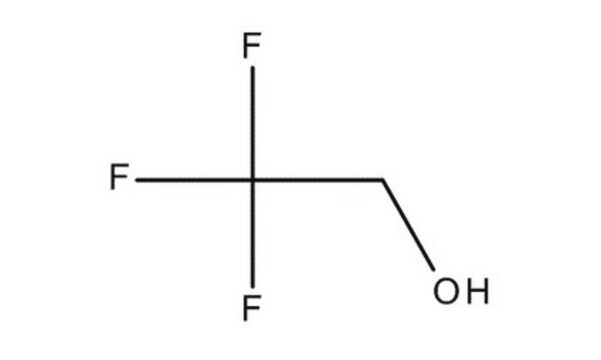105228
1,1,1,3,3,3-Hexafluoro-2-propanol
≥99%
Synonym(s):
HFP, Hexafluoroisopropanol
About This Item
Recommended Products
Assay
≥99%
refractive index
n20/D 1.275 (lit.)
bp
59 °C (lit.)
mp
−4 °C (lit.)
density
1.596 g/mL at 25 °C (lit.)
SMILES string
OC(C(F)(F)F)C(F)(F)F
InChI
1S/C3H2F6O/c4-2(5,6)1(10)3(7,8)9/h1,10H
InChI key
BYEAHWXPCBROCE-UHFFFAOYSA-N
Looking for similar products? Visit Product Comparison Guide
General description
Application
Signal Word
Danger
Hazard Statements
Precautionary Statements
Hazard Classifications
Eye Dam. 1 - Repr. 2 - Skin Corr. 1A - STOT RE 2 Oral
Target Organs
Central nervous system
Storage Class Code
8B - Non-combustible corrosive hazardous materials
WGK
WGK 2
Flash Point(F)
No data available
Flash Point(C)
No data available
Personal Protective Equipment
Certificates of Analysis (COA)
Search for Certificates of Analysis (COA) by entering the products Lot/Batch Number. Lot and Batch Numbers can be found on a product’s label following the words ‘Lot’ or ‘Batch’.
Already Own This Product?
Find documentation for the products that you have recently purchased in the Document Library.
Customers Also Viewed
Articles
To keep pace with Moore′s Law, there is a continuing need in the semiconductor industry to achieve higher circuit density in microelectronic devices.
Our team of scientists has experience in all areas of research including Life Science, Material Science, Chemical Synthesis, Chromatography, Analytical and many others.
Contact Technical Service













